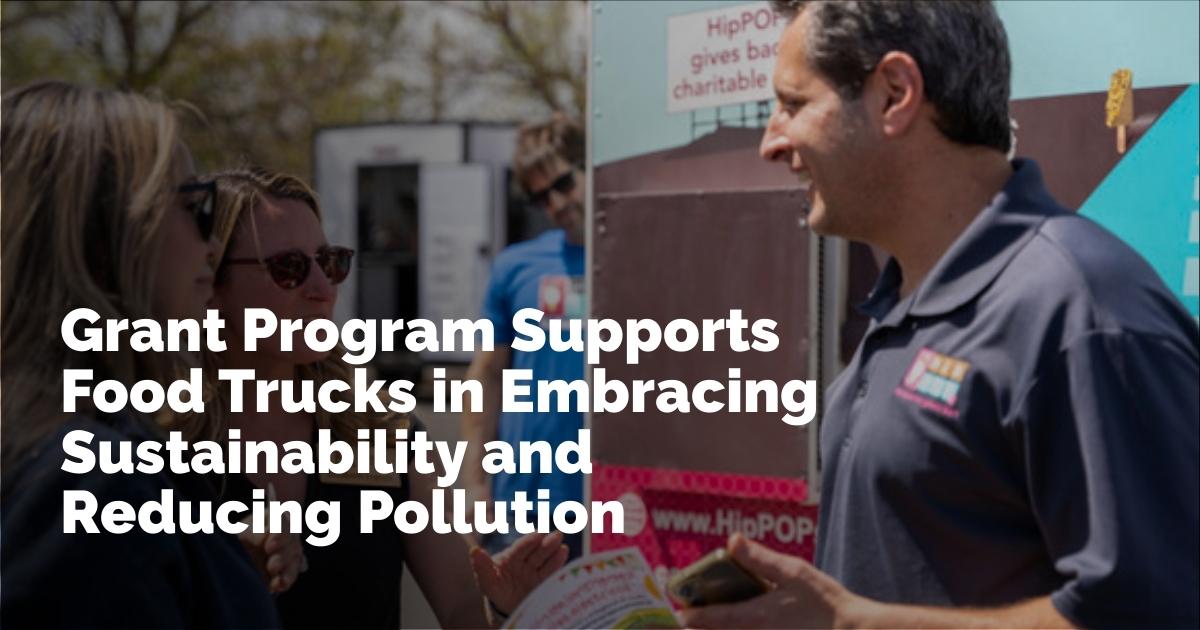Money for Mobile Business Electrification in Boulder County
In an exemplary initiative for sustainability, Boulder County, Colorado, has introduced an innovative grant program aimed at mobile businesses such as food trucks. This venture, a joint effort by Partners for a Clean Environment (PACE), the Regional Air Quality Council (RAQC), and the City of Boulder, supports the electrification of food trucks and offers efficiency upgrades. By providing substantial financial assistance, the program aims to reduce emissions and promote greener business practices. This article delves into the structure and benefits of this initiative, the upcoming Food Truck Electrification Rally, and the organizations involved.
Supporting Electric Transition for Food Trucks
The rapidly evolving landscape of urban mobility is seeing food trucks at the forefront of a green revolution, particularly in Boulder County. With over 180 mobile businesses set to benefit, the recently launched Food Truck Electrification & Efficiency program offers grants that cover up to 80% of the costs associated with converting gas-powered equipment to electric alternatives. This grant assists in the integration of electric battery systems, energy-efficient kitchen equipment, and solar power technology. Such advancements promise to diminish the carbon footprint left by traditional fuel-based systems.
PACE Programming and Community Relations Specialist, Norma King, highlights the integral role food trucks play in the community and culture. The grant program arises as a strategic opportunity not only to sustain these businesses but also to champion environmental stewardship. A single gas generator, operating for eight hours, emits as much carbon dioxide as burning 83 pounds of coal, according to U.S. Department of Energy data. Hence, the transition to electric is a significant step toward mitigating such emissions and fostering healthier, more sustainable communities.
Embracing a Future Powered by Clean Electricity
Susie Strife, Director of Sustainability for Boulder County, speaks to the far-reaching implications of this endeavor: enhancing air quality and reducing costs through electrification. As food trucks swap noisy gas generators for silent, zero-emission battery power and solar systems, the environmental and economic benefits become clearer. This shift promises reduced noise pollution and greater operational efficiency, positioning mobile businesses as pioneers in the domain of clean energy adoption.
With Boulder County's commitment to sustainability, the program accepts applications on a first-come, first-served basis, continuing until funds are exhausted. The ease of access and substantial financial support offered by this grant is expected to drive significant participation from the local mobile business community.
Food Truck Electrification Rally: A Tech Showcase
To further endorse and illuminate the grant program, PACE is hosting a Food Truck Electrification Rally on June 3rd in Longmont, at the Latino Chamber of Commerce. This event encourages collaboration among food truck operators, experts, vendors, and other mobile business owners who have transitioned to clean energy systems.
Attendees can expect demonstrations of electrified food trucks, expert advisory panels on food truck electrification, insights from RAQC and PACE teams, and complimentary refreshments. This rally offers an invaluable opportunity to explore the practical applications of electric upgrades and connects interested operators with vital resources to facilitate their transition.
Food truck owners and mobile business entrepreneurs eager to discover the benefits of electrification are urged to attend. It promises to be an educational hub, fostering discussions and partnerships that could lead to widespread adoption of sustainable practices within the mobile food industry.
Partners for a Clean Environment (PACE): Driving Sustainability
PACE stands as Boulder County's vanguard for business sustainability, providing expert guidance and fiscal incentives to help local businesses minimize their environmental impact while maximizing their economic efficiency. Embedded within the Boulder County Office of Sustainability, Climate Action, and Resilience, PACE's efforts are bolstered by the Boulder County Sustainability Tax and the City of Boulder's Climate Tax.
By advancing PACE’s Refrigeration and Restaurant Equipment Grant alongside RAQC’s Engines Off program, PACE demonstrates its dedication to pioneering sustainable business solutions. The collective aim is not merely to sustain, but to thrive – supporting businesses as they adopt environmentally conscious practices that lead to a brighter, cleaner future.
The Role of the Regional Air Quality Council (RAQC)
Beyond Boulder’s borders, the RAQC functions as Colorado’s primary air quality planning body, engaging with the Denver metro/North Front Range region. Through collaborative planning, policy-making, and the development of innovative initiatives like the Engines Off program, RAQC dedicates itself to enhancing air quality and promoting healthier environments for all inhabitants.
In partnership with PACE and the City of Boulder, RAQC's involvement in the electrification program signifies a unified vision for transformative environmental health outcomes, not only for Boulder County but potentially setting a precedent for broader application.
Mission of the Office of Sustainability, Climate Action & Resilience
At its core, the mission of Boulder County’s Office of Sustainability, Climate Action, and Resilience is to forward initiatives that conserve resources, protect the environment, and foster resilience in the face of climate challenges. By facilitating policies and programs such as the Food Truck Electrification & Efficiency program, the Office underscores its commitment to building a sustainable and just community for future generations.
In summary, Boulder County’s progressive steps in supporting electrification for mobile businesses mark a profound chapter in environmental leadership. As these mobile entities transition to cleaner energy sources, the promise of reduced emissions, enhanced community health, and preserved natural resources stands as a testament to the power of strategic public-private partnerships in achieving sustainability.
Note: For complete details on grant eligibility and the application process, interested parties should consult directly with PACE or visit the program’s official website.
출처 : Original Source

